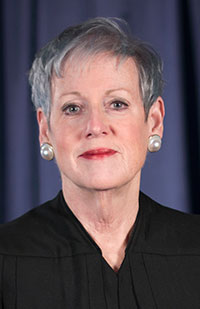Chief Justice ‘Tolls’ Time Requirements to Aid Courts in Crisis

Ohio Supreme Court Chief Justice Maureen O'Connor

Ohio Supreme Court Chief Justice Maureen O'Connor
Ohio Supreme Court Chief Justice Maureen O’Connor issued an order today allowing for the delay of a variety of legal deadlines to help the state’s courts grapple with the coronavirus crisis.
The Court has provided a Tolling Order/Frequently Asked Questions page to provide additional information.
Known as tolling, the order applies to all time limitations and deadlines in the rules written by the Supreme Court of Ohio. The order is retroactive to March 9 and will expire when the emergency period ends, or on July 30, whichever is sooner.
“Courts around Ohio have been working diligently to keep their operations running while abiding by strict guidelines from the Ohio Department of Health and the governor regarding physical distancing, such as limiting the size of gatherings,” Chief Justice O’Connor said.
As these access efforts grow along with the number of virus cases and deaths, issues surrounding the timing of legal matters have become more acute.
“My discussions with local judges and attorneys have made it clear that this unprecedented crisis requires unique solutions,” Chief Justice O’Connor said.
The tolling order, the Chief Justice said, provides “uniformity, clarity and legal continuity in our state – in the short term and the long term.”
In the order, “time requirements” is defined as the time for all filings, including appeals, deadlines, and other directives related to time, including non-constitutional jurisdictional deadlines.
Nothing in the order prohibits filings from being made during the emergency period.
The pausing and delaying of timing and deadlines will apply to the Ohio Rules of:
- Civil Procedure
- Criminal Procedure
- Evidence
- Juvenile Procedure
- Professional Conduct
- Traffic
- Appointment of Counsel in Capital Cases
- Government of the Bar
- Government of the Judiciary
- Practice of the Supreme Court
- Superintendence for the Courts
- Supreme Court Reporting of Opinions
- Mayor’s Courts Forms, Instructions, and Education & Procedure.
In addition to the tolling provisions, the order addresses the use of technology by courts. Any requirement that a party appear in person or that requires in-person service may be waived by the Supreme Court, local court, hearing panel, board, or commission hearing the case.
Appearance or service by use of technology may be allowed if it sufficiently guarantees the integrity of the proceedings and protects the parties’ interests and rights, according to the order.
Acrobat Reader is a trademark of Adobe Systems Incorporated.


